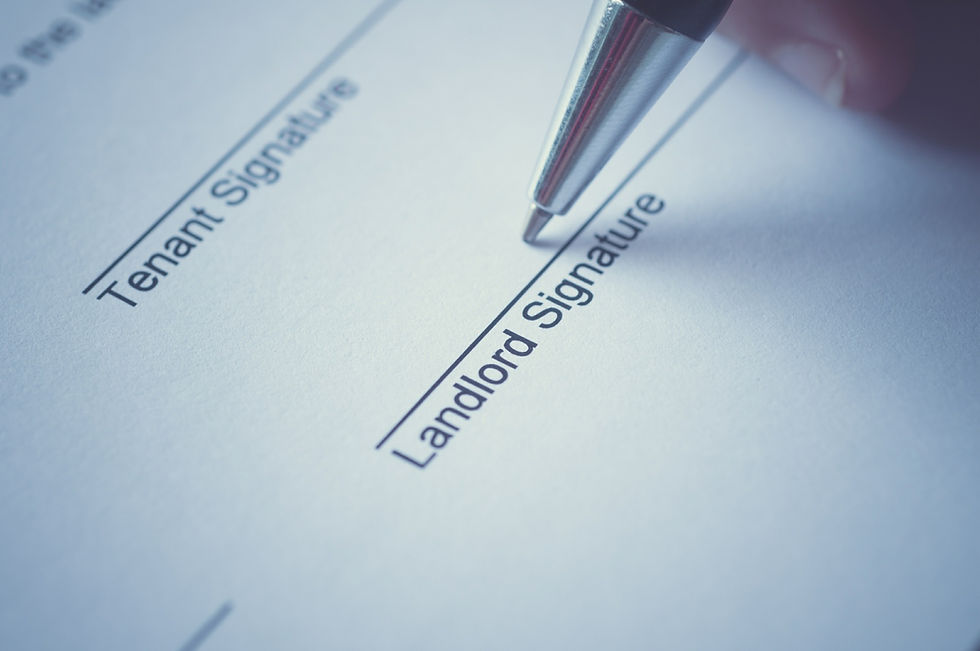BUY TO LET MORTGAGES - 5 KEY THINGS TO CONSIDER
- Harjinder Atwal

- Jul 23, 2021
- 4 min read

If you are an aspiring property investor or looking to increase your passive income, then buying a property is likely to be on your radar of ‘things to do’. However, it is worth considering this option in detail to ensure that you are aware of all the possible considerations that come with being a landlord.
Check out these 5 key things to consider:
1) TYPICAL ELIGIBILITY FOR BUY TO LET MORTGAGES
According to The Mortgage Works, to qualify for a buy to let mortgage, you must:
· Be a minimum of 21 years of age.
· The buy to let property must be in the UK.
· The maximum loan to value (LTV) is 80% subject to the loan amount.
· Properties must be let under an AST (Assured Shorthold Tenancy or a company let agreement
· Not renting to a family member
· For more details click HERE.

Whilst criteria vary from lender to lender, the above shows an example of how a Buy to Let mortgage must adhere to more rules than a regular, residential mortgage. There is specialist buy to let lenders who will be more flexible with their eligibility requirements for both standard buy to let and HMOs.
2) THERE’S MORE TO CONSIDER THAN JUST THE MORTGAGE
If you are considering expanding your property portfolio, you will need to consider more than just your Buy to Let mortgage repayments. Landlords are subject to a variety of hidden expenses when managing properties.
Accordingly to Simply Business, landlords should have at least £3000 put aside for expenses each year to cover expenses like:
· maintenance & repair: boiler repair, heating, electrical, structural
· Decorating & refurbishment: carpet damage, painting, furniture replacement, white goods replacement
· Damaged caused by tenants.
· Non payment of rent/ absconding/ squatters
· Estate agent fees
This is by no means an exhaustive list but served to highlight than being a landlord is not as passive as some other forms of income! You will also have no rental income if, for any reason, you cannot find a tenant for your property.
3) YOU MAY BE LIABLE FOR INCOME TAX ON YOUR RENTAL INCOME
Income gained from renting a property is classed as income and as such you will be liable for income tax on this profit. Full details can be found on the government website HERE.
You will be required to keep detailed records of rental income and expenses to include:
· Rent books.
· Receipts
· Invoices
· Bank statements
· Mileage expenses related to your property.
There are several expenses which you can deduct from your income which are not liable to be taxed:
· Maintenance and repair to your property (excluding optional upgrading)
· Water rates, council tax, gas & electricity
· Landlords’ insurance
· Wages for cleaners, gardeners etc
· Letting and estate agent fees
· Legal fees
· Accountant fees
· Sub-letting fees (rent, ground rent, service charge)
· Advertising and marketing costs

4) WHO IS YOUR TENANT AND WHERE DO THEY LIVE?
Becoming a landlord is all about income: if you want to buy a property to let it out, you need to purchase the right property in the right area for the right type of tenant. What this boils down to is that you should do your research before buying your property:
· Conduct research to find areas which are popular for renting. This may or may not be close to where you live but the focus here is on the tenant, not on where you might want to live yourself.
· If you chose not to use an estate agent, you may need to be within travelling distance of your property.
· Consider the needs of your tenant. A rural property will probably not be suitable for a student let. Your target market and the local services need to synchronise.
· Taking on a property with existing tenants eradicates the need to find new tenants but make sure you know what their current tenancy agreement says and discuss with your solicitor accordingly.
5) LANDLORD INSURANCES
Owning a property portfolio comes with plenty of potential pitfalls. You will need to be properly insured to cover yourself for events and incidents that may be out of your control. Due diligence on insurance research could make or break your investment. Be sure to consider:
· You will likely need specialist building and/ or contents insurance (depending on if your property is furnished or unfurnished)
· Do not be tempted by price alone. Make sure that you chose a cover that is comprehensive and meets all your requirements. Should the worst happen, you need to know that your insurance company will be in your corner and pay out to protect your investment.
· Compare like for like policies to know what policy is the best value.
· You may be able to get an insurance policy to cover rental income if your property is without a tenant. Affording this may be a better option than having to pay the mortgage.
If you are considering buying a property to let and would like to discuss your options, please get in touch with us on 01234 604501 or email harjinder@bibimortgages.co.uk





Comments